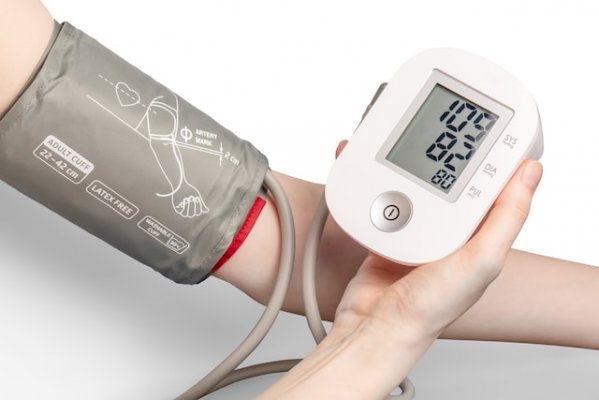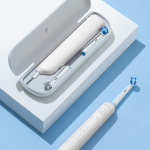When it comes to healthcare and medical device manufacturing, quality control is vital. Quality assurance (QA) in the field of medical devices ensures that any product developed meets the required standards for safety, efficacy, reliability, and stability. In this blog post, we will explore different aspects of quality assurance for medical devices--from its importance to establishing processes and systems. We'll take a look at the top strategies that manufacturers can use to ensure high-quality products throughout their development process in order to meet rigorous market requirements while creating greater efficiencies along their supply chain journey. We’ll also discuss how real-time data integration through comprehensive workflow tools can help organizations set higher standards as they strive towards success - by delivering better outcomes with fewer resources than ever before!

The medical device industry is crucial in the current healthcare system, responsible for producing products that have a significant impact on human lives. As a result, multiple regulations have been enacted to ensure that medical devices are designed, developed, and manufactured to high standards that prioritize patient safety. It is particularly important for industry stakeholders to understand these regulations to ensure that their products are compliant with the law. The regulations governing the medical device industry aim to enhance the quality and safety of medical devices, while also ensuring they are accessible to patients who need them. Also, medical QMS procedures must be implemented to lessen errors and improve patient safety. These procedures are designed and implemented to ensure that processes are in place which allows for quality and safety checks to be carried out during the entire production process. Therefore, it is essential to research and comprehends these regulations to comply with them and help shape the future of the medical device industry.
Quality control is the backbone of any successful production operation, and implementing a system to monitor it is crucial for businesses to ensure compliance with safety and industry standards. By committing to a quality control system, companies can prevent costly errors, avoid production delays, and ultimately improve their bottom line. By setting clear benchmarks and protocols that all employees must follow, a quality control system can help to reduce the potential for mistakes, while also promoting consistent excellence in product output. With safety and compliance at the forefront of these efforts, companies can ensure the safety of their employees, customers, and the environment. The implementation of a thorough and reliable quality control system is a wise investment for any business looking to succeed in today's competitive marketplace.
One of the most important aspects of ensuring the safety and effectiveness of medical devices is ensuring that personnel are properly trained in their use. When it comes to medical devices, proper use could make all the difference, particularly when it comes to preventing errors and protecting patients. That's why it's so important for healthcare organizations to provide comprehensive training for staff members who will be using medical devices. Not only must personnel be thoroughly trained on how to use the devices themselves, but they must also be knowledgeable about proper maintenance, storage, and cleaning of the devices. Documenting training records is an important part of this process, and helps organizations stay on top of their compliance requirements. Ultimately, those involved in the use of medical devices have an enormous responsibility to ensure that they are used safely and to the best of their abilities, so it's crucial that organizations commit to providing the training and resources necessary to make this happen.
Securing the safety and quality of the raw materials utilized is essential when creating medical equipment. Using genuine certificates of analysis for all incoming items is one approach to ensure this. In the production process, these certificates are essential for confirming the ingredients' authenticity, purity, and potency. This helps to reduce potential dangers to patients as well as ensure that the final product complies with industry standards. Medical device makers can boost patient and healthcare professional confidence by embracing the use of certificates of analysis.
 Ensuring that a manufacturing facility is operating at its best requires proper maintenance and monitoring. One essential task that every company must conduct is regular depth testing and environmental monitoring. These ensure the facility's business operations' safety and effectiveness, from product quality to employee well-being. Depth testing allows manufacturers to measure the sedimentation in tanks, helping them determine when to clean and avoid contamination. Meanwhile, environmental monitoring assesses the air quality, water purity, and overall sanitation of the facility, identifying and mitigating health risks. By prioritizing these measures, companies can improve their overall output and protect everyone involved in the manufacturing process.
Ensuring that a manufacturing facility is operating at its best requires proper maintenance and monitoring. One essential task that every company must conduct is regular depth testing and environmental monitoring. These ensure the facility's business operations' safety and effectiveness, from product quality to employee well-being. Depth testing allows manufacturers to measure the sedimentation in tanks, helping them determine when to clean and avoid contamination. Meanwhile, environmental monitoring assesses the air quality, water purity, and overall sanitation of the facility, identifying and mitigating health risks. By prioritizing these measures, companies can improve their overall output and protect everyone involved in the manufacturing process.
Finally, the adoption of Good Manufacturing Practices (GMPs) is essential for maintaining quality control and ensuring consistent product performance. GMPs provide manufacturers with specific guidelines to follow when it comes to production processes and materials selection. This helps to ensure that products are manufactured in a safe, efficient, and effective manner. By incorporating GMPs into their operations, medical device manufacturers can make sure that their products are up to the highest standards. This will ultimately help improve patient outcomes while also meeting regulatory requirements.
In conclusion, ensuring the safety and quality of medical devices is a priority for healthcare organizations around the world. By investing in comprehensive training for staff members, securing the necessary certificates of analysis, performing regular depth testing and environmental monitoring, and adopting Good Manufacturing Practices, companies can make sure that their medical devices are of the highest standard and up to all regulatory requirements. Doing so will ultimately help improve patient outcomes and ensure the safety of healthcare professionals, while also helping medical device manufacturers to ensure their products are up to the highest standards possible.





